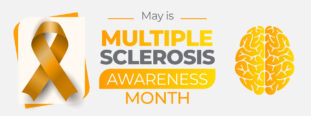What Do You Need?
A person’s needs are constantly changing throughout life and nowhere is this more true than when you’re living with multiple sclerosis (MS). People need information to answer their many questions about MS and to make informed decisions, services to enable access to care, tools to make life easier, skills and perspective to help in coping.
Three studies at the ECTRIMS (European Committee for Treatment and Research in MS) meeting surveyed people with MS to see if they were getting what they needed and to identify any gaps. The Italian MS Society questioned over 2,500 adults living with MS at their doctor’s office, MS clinic, rehabilitation centre and over the Internet (Ponzio and colleagues. ECTRIMS 2012; abstract P250). Most said they had a high degree of independence in their daily lives, with only 13% saying they had a low level of independence. The most common needs were for help managing all the bureaucracy, rehabilitation services, and help in managing personal or family activities. Many people also reported problems with transportation, and access issues in their home or in public buildings (e.g. a need for ramps). Over 90% of people said they had at least one need that wasn’t being met.
The Seattle chapter of the National MS Society in the U.S. conducted a telephone survey of 440 people in Washington, Montana and Alaska (Johnson and colleagues. ECTRIMS 2012; abstract P587). Of particular interest was people with primary-progressive MS, men with MS and those living in rural communities with less access to services. One-third of their sample had progressive MS, and most had a moderate level of disability (EDSS score of 4 or 5). What most people said they needed was programs run by a professional that would help them improve their physical activity and wellness, and to provide them with emotional support. One obvious challenge was that a one-program-fits-all approach often fits no one. The needs expressed by people were as varied as the people themselves, and differed according to the amount of time they’d lived with MS, their wellness, and the symptoms or difficulties they were having.
The third study looked at the disconnect between people with MS and their loved ones (Lorefice and colleagues. ECTRIMS 2012; abstract P593). So the survey included about 500 people with MS and about 200 caregivers to see where their perspectives differed. Most people in both groups said they sought out more information about MS after the diagnosis – most often from Internet websites.
Both groups agreed that there was a need for psychological support from family and other loved ones. However, people living with MS thought that family support was less important than family members did, which may reflect a person’s need to maintain a sense of independence. <p id=”my-voice”> People with MS and their caregivers agreed that relationships with family and friends hadn’t changed much after the diagnosis. Where they disagreed was in their view of the person’s relationships with co-workers. People with MS were more likely to say that MS had had a negative effect on their relationship with work colleagues.
Tell us about your experience and view latest results from others
Share this article
Facebook Twitter pin it! Email
Related Posts
Back





